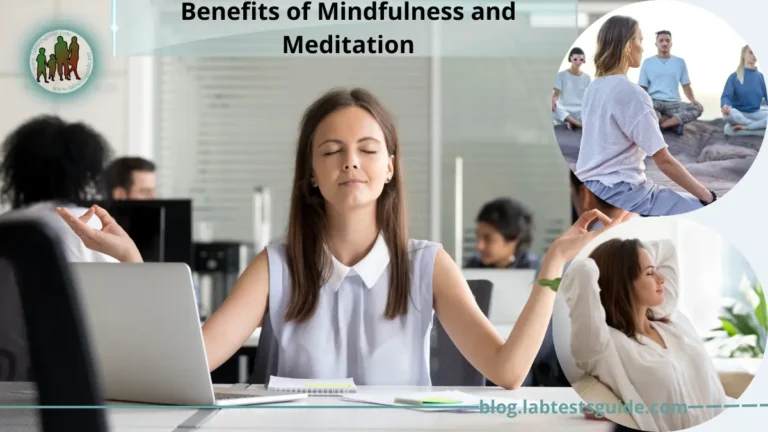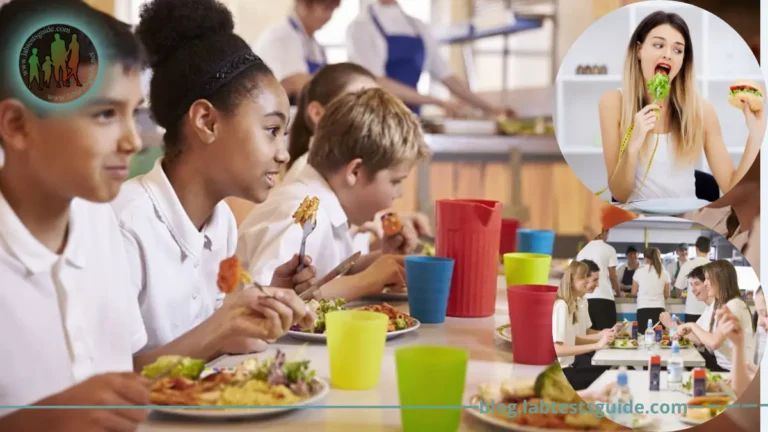Practicing gratitude involves cultivating a mindful appreciation for the positive aspects of life, which can significantly improve mental health. Start by setting aside a few minutes daily to reflect on things you’re thankful for, whether it’s relationships, achievements, nature’s beauty, or simple pleasures. Keep a gratitude journal to jot down these thoughts. Engage in acts of kindness and express your thanks to others, fostering a sense of connection. This practice can rewire your brain to focus on the uplifting, fostering resilience against stress and promoting a more optimistic outlook, ultimately bolstering your overall mental well-being.

The Impact of Gratitude on Mental Health:
- Research and studies on the connection between gratitude and mental health
- Positive effects of gratitude on psychological well-being
- Reduction of stress, anxiety, and depression through gratitude
- Influence of gratitude on resilience and coping mechanisms
- Improved overall life satisfaction and happiness
Benefits of Practicing Gratitude:
Reduced Stress and Anxiety
- How gratitude helps in reducing stress levels
- The role of gratitude in managing anxiety symptoms
- Gratitude as a coping mechanism during challenging times
- Studies and evidence supporting the stress-reducing effects of gratitude
Improved Sleep Quality
- The link between gratitude and better sleep
- How expressing gratitude before bed promotes relaxation
- Reduction of intrusive thoughts and worry through gratitude practice
- Establishing a bedtime gratitude routine for improved sleep patterns.
Increased Resilience and Emotional Well-being
- How gratitude enhances resilience in the face of adversity
- The relationship between gratitude and emotional well-being
- Building emotional intelligence through gratitude practice
- Cultivating a positive mindset and optimism through gratitude.
Enhanced Relationships and Social Connections
- The impact of gratitude on interpersonal relationships
- Strengthening bonds and fostering gratitude in relationships
- Gratitude as a tool for improving communication and empathy
- Creating a positive and supportive social environment through gratitude.
Boosted Self-Esteem and Happiness
- How gratitude contributes to increased self-esteem
- The role of gratitude in cultivating a sense of worth and value
- Gratitude as a pathway to long-term happiness
- The link between gratitude and overall life satisfaction.
This section explores the various benefits of practicing gratitude for mental health. It discusses the positive effects of gratitude on stress reduction, anxiety management, improved sleep quality, increased resilience, emotional well-being, enhanced relationships, and boosted self-esteem and happiness. Each benefit is supported by research and provides insights into how gratitude positively impacts different aspects of mental health.
Strategies to Cultivate Gratitude:
Keep a Gratitude Journal
- Introduction to gratitude journaling as a popular practice
- Steps to start and maintain a gratitude journal
- Writing prompts and exercises for gratitude reflection
- Incorporating gratitude journaling into a daily routine.
Practice Mindfulness and Present-Moment Awareness
- How mindfulness enhances gratitude
- Being fully present and attentive to experiences
- Mindful observation of positive aspects in everyday life
- Techniques for cultivating mindfulness and gratitude together
Express Gratitude to Others
- The power of expressing gratitude to individuals
- Verbal and written expressions of appreciation
- Cultivating a habit of saying “thank you”
- Creative ways to show gratitude to others.
Engage in Acts of Kindness
- Connecting gratitude and kindness
- Performing acts of kindness for others
- Noticing the impact of kind gestures on gratitude
- Finding opportunities for daily acts of kindness.
Reflect on Challenging Situations
- Shifting perspective to find gratitude in difficult times
- Extracting lessons and growth from challenging experiences
- Gratitude for personal strength and resilience
- Finding gratitude even in small moments of progress
This section outlines various strategies to cultivate gratitude in daily life. It covers practices such as keeping a gratitude journal, practicing mindfulness and present-moment awareness, expressing gratitude to others, engaging in acts of kindness, and reflecting on challenging situations. These strategies aim to help individuals develop a mindset of gratitude and incorporate it into their daily routines and interactions with others.
Incorporating Gratitude into Daily Life:
Morning Gratitude Rituals
- Starting the day with a gratitude practice
- Setting positive intentions and affirmations
- Reflecting on what you’re grateful for each morning
- Incorporating gratitude into morning routines or rituals.
Gratitude Meditations and Visualizations:
- Guided gratitude meditations to cultivate appreciation
- Visualization exercises for focusing on gratitude
- Incorporating breathwork and relaxation techniques
- Using gratitude as a form of self-care and reflection.
Gratitude in Relationships:
- Expressing gratitude to loved ones and friends
- Creating a gratitude jar or gratitude notes for partners or family members
- Practicing active listening and appreciation in conversations
- Making gratitude a part of relationship rituals or traditions.
Gratitude for Personal Achievements
- Celebrating personal milestones and accomplishments
- Acknowledging your progress and growth
- Practicing self-appreciation and self-compassion
- Setting gratitude-based goals and acknowledging achievements along the way.
Gratitude Before Sleep
- Reflecting on the day’s positive experiences and moments
- Writing down or mentally listing things you’re grateful for
- Practicing gratitude visualization for a peaceful sleep
- Cultivating a sense of gratitude and contentment before bedtime.
This section provides practical ways to incorporate gratitude into daily life. It suggests morning gratitude rituals, gratitude meditations and visualizations, expressing gratitude in relationships, practicing gratitude for personal achievements, and integrating gratitude into bedtime routines. These practices help individuals develop a consistent habit of gratitude and make it an integral part of their daily lives.
Overcoming Challenges and Sustaining Gratitude Practice:
Overcoming Negativity Bias
- Understanding the negativity bias and its impact on gratitude
- Recognizing and challenging negative thought patterns
- Cultivating awareness of positive experiences and blessings
- Reframing negative situations through a gratitude lens.
Being Consistent and Patient
- Importance of consistency in practicing gratitude
- Establishing a regular gratitude routine
- Setting reminders or cues to express gratitude
- Patience and perseverance in developing a gratitude mindset.
Gratitude as a Mindset Shift
- Shifting from scarcity to abundance mentality
- Focusing on what you have rather than what you lack
- Embracing gratitude as a way of life
- Practicing gratitude beyond specific situations or events.
Seeking Professional Support
- Recognizing when professional support may be beneficial
- Consulting therapists or counselors for guidance
- Exploring gratitude-based therapies or interventions
- Incorporating gratitude into existing mental health treatment plans
This section addresses challenges that individuals may face in sustaining a gratitude practice and offers strategies to overcome them. It emphasizes overcoming the negativity bias, being consistent and patient in practicing gratitude, cultivating a gratitude mindset shift, and seeking professional support when needed. By addressing potential obstacles, individuals can develop resilience in their gratitude practice and sustain it for long-term mental well-being.
Additional Resources and Tools:
Gratitude Apps and Digital Tools
- Grateful: A gratitude journaling app with customizable prompts and reminders.
- 365 Gratitude: An app that encourages daily gratitude practice through journaling, quotes, and challenges.
- The Five Minute Journal: A popular app that prompts you to write down gratitude, affirmations, and reflections each day.
- Happify: An app that incorporates gratitude exercises along with other positive psychology techniques to improve well-being.
Books on Gratitude and Mental Health:
- “The Gratitude Diaries: How a Year Looking on the Bright Side Can Transform Your Life” by Janice Kaplan
- “Thanks! How Practicing Gratitude Can Make You Happier” by Robert A. Emmons
- “The Little Book of Gratitude: Create a Life of Happiness and Wellbeing by Giving Thanks” by Dr. Robert Holden
- “Gratitude Works!: A 21-Day Program for Creating Emotional Prosperity” by Robert A. Emmons.
Online Communities and Support Groups:
- r/gratitude on Reddit: A subreddit dedicated to sharing and discussing gratitude experiences and reflections.
- Gratitude Circle on Facebook: A community of individuals who come together to share gratitude and support each other.
- Insight Timer: A meditation app with a community feature where you can connect with others practicing gratitude and mindfulness.
These additional resources and tools provide specific recommendations for gratitude apps and digital tools, books on gratitude and mental health, and online communities and support groups. They offer practical ways to incorporate gratitude into daily life and connect with like-minded individuals who are also on a gratitude journey.
Conclusion
In conclusion, practicing gratitude can have a profound impact on mental health and overall well-being. This guide has explored various aspects of gratitude, including understanding gratitude, the benefits of practicing gratitude, strategies to cultivate gratitude, incorporating gratitude into daily life, overcoming challenges in sustaining gratitude practice, and additional resources and tools.
By practicing gratitude, individuals can experience reduced stress and anxiety, improved sleep quality, increased resilience and emotional well-being, enhanced relationships and social connections, and boosted self-esteem and happiness. Strategies such as keeping a gratitude journal, practicing mindfulness, expressing gratitude to others, engaging in acts of kindness, and reflecting on challenging situations can help cultivate gratitude in daily life.
However, it is important to overcome challenges such as the negativity bias, maintain consistency and patience, and view gratitude as a mindset shift. Seeking professional support when needed can also be beneficial in sustaining a gratitude practice.
Additional resources and tools, such as gratitude apps, books on gratitude, and online communities and support groups, can provide further guidance, inspiration, and support on the gratitude journey.
Incorporating gratitude into daily life is a powerful way to improve mental health, foster positivity, and cultivate a deeper appreciation for the present moment. By embracing gratitude as a daily practice, individuals can experience profound positive changes in their overall well-being and lead more fulfilling lives.






